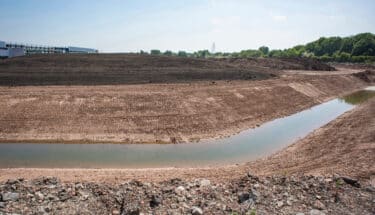 New Jersey’s Energy Master Plan unveiled in January by Gov. Phil Murphy outlines strategies for the state to reach its ambitious goal of 100% clean energy by 2050. As the state works toward this goal and moves forward into a cleaner energy economy, the big question is: What will it cost?
New Jersey’s Energy Master Plan unveiled in January by Gov. Phil Murphy outlines strategies for the state to reach its ambitious goal of 100% clean energy by 2050. As the state works toward this goal and moves forward into a cleaner energy economy, the big question is: What will it cost?
This morning, New Jersey Board of Public Utilities (BPU) President Joseph L. Fiordaliso participated in a virtual town hall event hosted by the New Jersey Business & Industry Association (NJBIA) and the New Jersey Chamber of Commerce, where he shared his insights on the topic, and discussed challenges moving forward.
“We have to know what the cost is, and we have to know if we are getting the best bang for our buck in a variety of different programs,” Fiordaliso said. “If ‘Program A’ is not providing us with what we think it should be providing us, then maybe we have to go to ‘Program B.’ The important thing to remember is that we have never done this before. But [cost] is a major concern of ours and we constantly weigh [it with the] benefit.”
Fiordaliso added that the BPU is currently working with a consultant who is assisting with calculating potential ratepayer impacts and similar costs associated with the various programs and initiatives that go into the EMP.
“You have reasonable people from the government on down who are not going to do anything to jeopardize the business climate in New Jersey, or the ability for our ratepayers to have heat and everything else that they want,” Fiordaliso said. “I want people to know that we don’t just throw things up against the wall and see what sticks. We put a lot of thought and gather a lot of experts to help us see what the best direction is for us to go.”
Fiordaliso emphasized that prudence is key when evaluating how to move forward.
“Clean energy, right now, cannot pick up the slack. That is why natural gas and nuclear power is important. Gas and nuclear are bridges to get us to 100% clean energy,” he said. “People ask me if natural gas is going to become obsolete one day, and the answer is no, certainly not in our lifetime. If we shut off [natural gas] tomorrow, we are not going to have heat.”
The BPU president also touched on the challenges associated with COVID-19 – specifically from an economic perspective, adding that one of the best ways to help stimulate the economy is to work extensively on infrastructure.
“It is vital that we come together as a business community and as a state government to provide as much incentive as we can for infrastructure enhancement,” Fiordaliso said. “It is vital to our economy and to our individual citizens who are looking for work, need work, and want to work.”
According to Fiordaliso, the BPU has been actively encouraging utilities to submit projects that involve infrastructure.
Overall, the BPU has continued its work throughout the pandemic, and has even launched its first marketing plan in 11 years to inform New Jerseyans on the work that is being done.
Some of that work includes Ocean Wind, the 1,100 MW offshore wind development project with Orsted, which Fiordaliso says will create 15,000 jobs over the life of the project. The state’s overall offshore wind goal now sits at 7,500 MW by 2035.
“We are working hard to make New Jersey the supply chain for the wind industry on the East Coast,” Fiordaliso said.
Other BPU initiatives and programs include the state’s goal for electric vehicle charging stations, which aims for 1,000 publicly accessible Level 2 chargers across the state by the end of 2025, and the Community Solar Energy Pilot Program, which aims to provide everyone with “an opportunity to participate in the green energy revolution regardless of their economic status.”
“One of our primary objectives is not only to generate new ways to make energy, but to make a more progressive economy,” Fiordaliso said. “So many exciting things are happening here in New Jersey in spite of the pandemic.”






